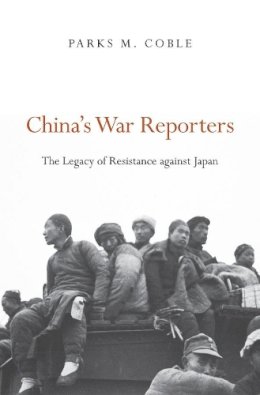
Stock image for illustration purposes only - book cover, edition or condition may vary.
China’s War Reporters: The Legacy of Resistance against Japan
Parks M. Coble
€ 58.81
FREE Delivery in Ireland
Description for China’s War Reporters: The Legacy of Resistance against Japan
Hardback. When Japan invaded China in 1937, Chinese journalists greeted the news with euphoria, convinced their countrymen, led by Chiang Kai-shek, would triumph. Parks Coble shows that correspondents underplayed China's defeats for fear of undercutting morale and then saw their writings disappear and themselves denounced after the Communists came to power. Num Pages: 267 pages, illustrations. BIC Classification: 1FPC; 1FPJ; HBJF; HBW. Category: (G) General (US: Trade). Dimension: 245 x 165 x 30. Weight in Grams: 552.
When Japan invaded China in the summer of 1937, many Chinese journalists greeted the news with euphoria. For years, the Chinese press had urged Chiang Kai-shek to resist Tokyo’s aggressive overtures. This was the war they wanted, convinced that their countrymen would triumph.
Parks Coble recaptures the experiences of China’s war correspondents during the Sino–Japanese War of 1937–1945. He delves into the wartime writing of reporters connected with the National Salvation Movement—journalists such as Fan Changjiang, Jin Zhonghua, and Zou Taofen—who believed their mission was to inspire the masses through patriotic reporting. As the Japanese army moved from one ... Read more
Product Details
Publisher
Harvard University Press
Format
Hardback
Publication date
2015
Condition
New
Weight
557g
Number of Pages
288
Place of Publication
Cambridge, Mass, United States
ISBN
9780674967670
SKU
V9780674967670
Shipping Time
Usually ships in 15 to 20 working days
Ref
99-2
About Parks M. Coble
Parks M. Coble is James L. Sellers Professor of History at the University of Nebraska–Lincoln.
Reviews for China’s War Reporters: The Legacy of Resistance against Japan
This is the first book to assess newspaper reports written during China’s war with Japan (1937–45) alongside new histories of the war that have appeared since the mid–1980s. Coble demonstrates the political slant of each body of literature—an emphasis on China’s bravery and resistance in the first instance, and on China’s victimization and Japanese brutality in the second. These stark ... Read more
